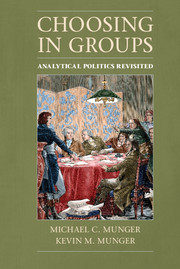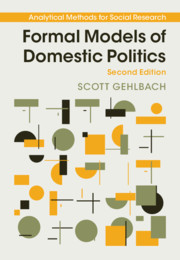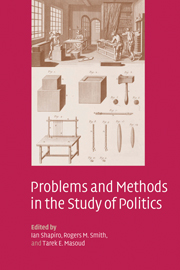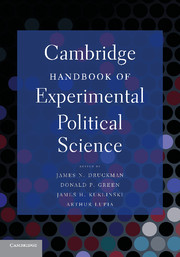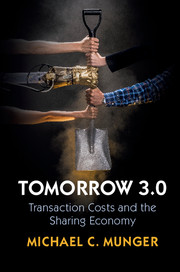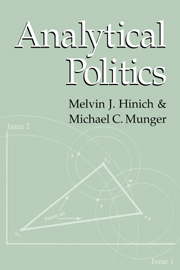Choosing in Groups
This book is an introduction to the logic and analytics of group choice. To understand how political institutions work, it is important to isolate what citizens – as individuals and as members of society – actually want. This book develops a means of “representing” the preferences of citizens so that institutions can be studied more carefully. This is the first book to integrate the classical problem of constitutions with modern spatial theory, connecting Aristotle and Montesquieu with Arrow and Buchanan.
- Chapters provide extensive problems, with solutions; some of the problems engage analytic concepts, but others are discussion exercises
- Arranged so that beginners can skip the more advanced chapters and still get a solid introduction
- Advanced material is presented at a level that will challenge advanced students and allow professionals to use the book as a reference
Reviews & endorsements
"This is a substantially revised version of Melvin Hinich and Michael Munger’s 1997 book, Analytical Politics. With new and updated discussions, as well as material not covered in the previous publication, this book will be a useful tool to teach undergraduate courses on the topic of social choice."
Carles Boix, Princeton University
"I have repeatedly assigned Hinich and Munger’s volume in both undergraduate and graduate courses that introduce students to rational choice, game theory, and contemporary political thought. This new version handles spatial voting models extremely well and adds much more that wasn’t covered previously. The authors’ work is careful and deep, illustrating that they have gone to great lengths to add substantive content while making the book more accessible to a broader audience. This is a fantastic book."
Keith L. Dougherty, University of Georgia
Product details
January 2015Hardback
9781107070035
268 pages
229 × 152 × 19 mm
0.57kg
27 b/w illus. 13 tables 46 exercises
Available
Table of Contents
- Part I. Basics:
- 1. The analysis of politics
- 2. Becoming a group: the constitution
- 3. Choosing in groups: an intuitive presentation
- 4. The formal analytics of choosing in groups
- Part II. Spatial Theory:
- 5. Politics as spatial competition
- 6. Two dimensions: elusive equilibrium
- Part III. Extensions: Collective Choice, Uncertainty, and Collective Action:
- 7. The collective-choice problem: impossibility
- 8. Uncertainty
- 9. Voting as a collective-action problem
- Solutions to selected problems.

